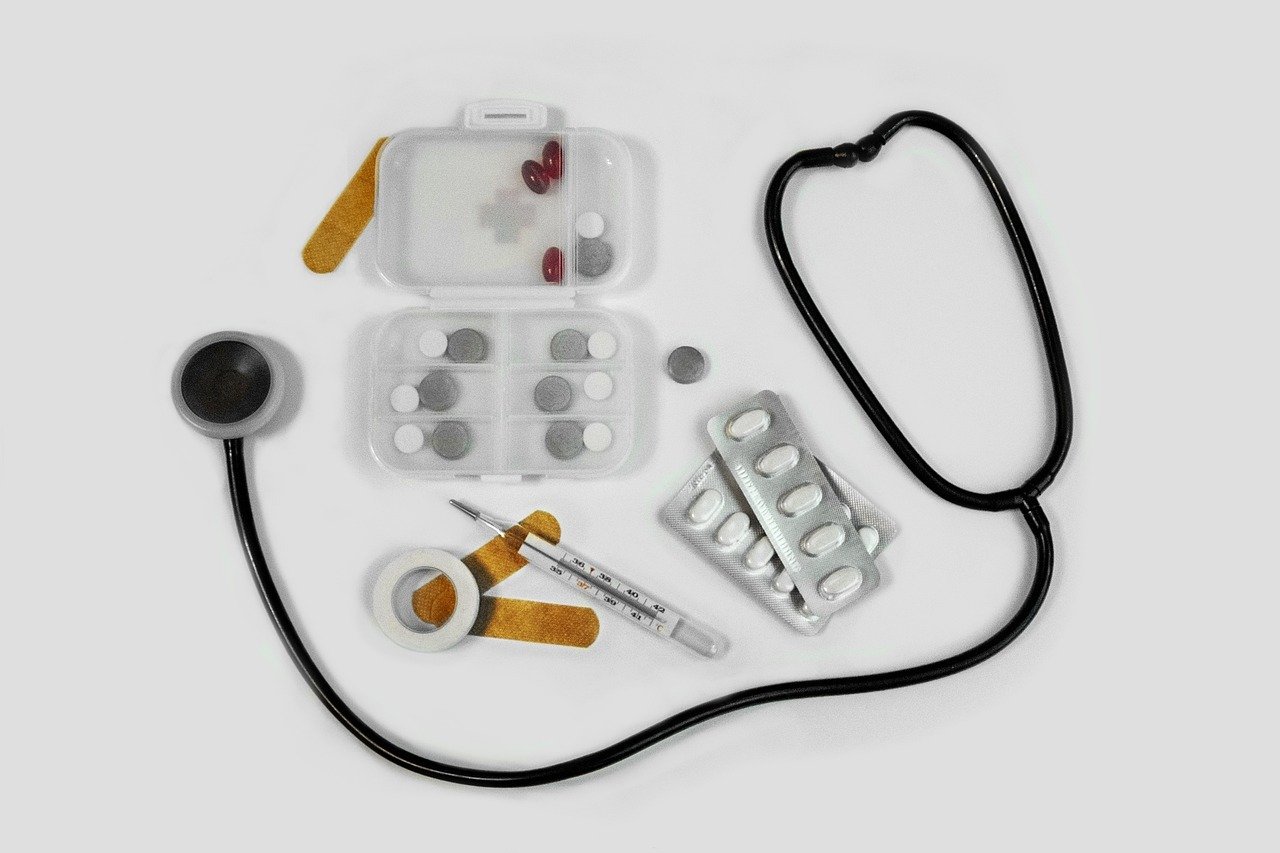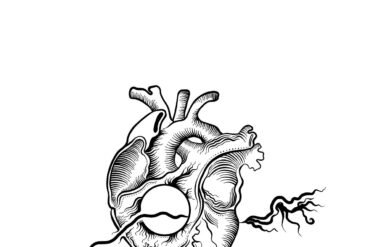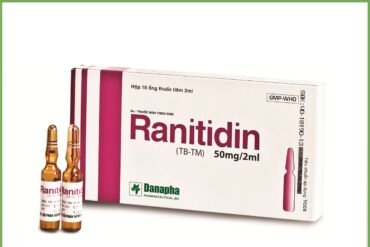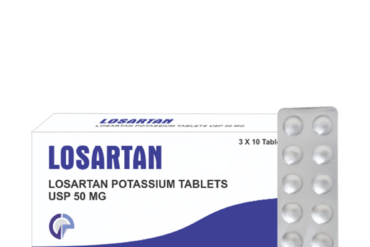The Role of Aspirin in Preventing Heart Attacks

Table of Contents
- Benefits of Aspirin for Heart Health
- Recommended Dosages of Aspirin
- Potential Risks of Aspirin Use
- Effectiveness of Aspirin in Preventing Heart Attacks
- Aspirin as a Preventative Measure
- Introduction to Aspirin
- Key Findings on Aspirin’s Role in Heart Attack Prevention
- Understanding the Proper Aspirin Dosage
- Potential Side Effects and Risks of Long
- term Aspirin Use
- Expert Opinions on Aspirin’s Effectiveness in Preventing Heart Attacks
Benefits of Aspirin for Heart Health
Aspirin has long been recognized as a powerful medication, but its benefits for heart health are particularly noteworthy. When taken appropriately and under medical supervision, aspirin can play a significant role in preventing heart attacks and improving overall cardiovascular health. Here are some key benefits of aspirin for heart health:
- Blood-thinning properties: Aspirin is known for its blood-thinning properties, which can reduce the risk of blood clots that can lead to heart attacks. By inhibiting the aggregation of platelets, aspirin helps to keep the blood flowing smoothly through the arteries, thus lowering the chances of blockages.
- Anti-inflammatory effects: Aspirin also possesses anti-inflammatory properties, which can be beneficial for heart health. Chronic inflammation in the body is associated with a higher risk of cardiovascular disease. By reducing inflammation, aspirin helps to protect the arteries and prevent the development of plaque, which can lead to heart attacks.
- Secondary prevention: Aspirin is often prescribed as part of secondary prevention strategies to reduce the risk of recurrent heart attacks or strokes in individuals who have already experienced such events. It helps to prevent further clot formation and can significantly improve long-term outcomes.
- Reduced risk of complications: In addition to preventing heart attacks, aspirin can also reduce the severity and risk of complications if a heart attack does occur. It can limit the extent of damage to the heart muscle and improve survival rates.
- Low cost and widespread availability: Aspirin is a relatively inexpensive and widely available medication, making it an accessible option for many people. It can be purchased over-the-counter without a prescription in many countries, making it a convenient choice for individuals who require long-term heart health management.
While aspirin offers numerous benefits for heart health, it is essential to emphasize that it should be taken under medical supervision. Aspirin may not be suitable for everyone and may carry some risks, especially in individuals with certain medical conditions or those taking other medications. It is crucial to consult with a healthcare professional before starting or altering any medication regimen, including aspirin for heart health purposes.
Recommended Dosages of Aspirin
Aspirin, a commonly used over-the-counter medication, has shown significant potential in preventing heart attacks. It acts as a blood thinner and helps to reduce the risk of blood clot formation, which can lead to a heart attack. However, it is crucial to follow the recommended dosages to harness the maximum benefits of aspirin while minimizing risks.
- Low-Dose Aspirin: The most commonly recommended dosage for preventing heart attacks is a low dose of aspirin, typically around 81 mg. This low dose is effective in inhibiting blood clot formation without causing excessive bleeding or side effects. It is important to note that higher doses of aspirin do not offer any additional benefits in terms of heart attack prevention.
- Timing and Frequency: It is generally advisable to take aspirin once daily, preferably in the evening after a meal. This timing ensures optimal absorption and minimizes potential stomach irritation. It is recommended to take aspirin consistently every day to maintain its preventive effects. However, it is important to consult a healthcare professional regarding the duration of aspirin therapy as it may vary depending on one’s medical history and overall health.
- Individualized Approach: While aspirin is beneficial for many people in preventing heart attacks, it is important to recognize that its usage may not be suitable for everyone. Individuals with certain medical conditions, such as bleeding disorders or gastrointestinal ulcers, or those on certain medications, may have contraindications to aspirin therapy. Therefore, it is crucial to consult with a healthcare provider before initiating aspirin therapy for heart attack prevention.
- Risks and Side Effects: Like any medication, aspirin is associated with potential risks and side effects. The most common side effect of aspirin is stomach irritation, which can lead to gastric ulcers or gastrointestinal bleeding. In rare cases, aspirin may trigger an allergic reaction or cause other adverse effects. It is important to promptly seek medical help if any unusual symptoms or side effects occur.
- Personalized Medical Advice: Considering the individual variations in health conditions, it is always best to consult with a healthcare professional to determine the appropriate dosage of aspirin for heart attack prevention. They will review your medical history, assess the risks, and provide personalized guidance to ensure the safe and effective use of aspirin.
Following the recommended dosages of aspirin for heart attack prevention can play a significant role in safeguarding your cardiovascular health. However, it is essential to remember that aspirin therapy should be pursued under medical supervision to assess its suitability and minimize potential risks.
Potential Risks of Aspirin Use
While aspirin has often been hailed as an effective agent in preventing heart attacks, it is crucial to understand the potential risks associated with its use. Although aspirin has numerous benefits, it may not be suitable for everyone. Here are some important points to consider:
- Gastrointestinal bleeding: One of the most significant risks of aspirin use is its potential to cause gastrointestinal bleeding. Aspirin can irritate the stomach lining, leading to gastritis or even stomach ulcers. In some cases, this could result in severe bleeding and require hospitalization.
- Allergic reactions: Some individuals may experience allergic reactions to aspirin, ranging from mild rashes to severe breathing difficulties. If you have a history of allergy to non-steroidal anti-inflammatory drugs (NSAIDs) or aspirin, it is crucial to consult with your healthcare provider before considering aspirin therapy.
- Bruising and bleeding: Aspirin can interfere with the blood’s clotting ability, which may lead to excessive bruising or prolonged bleeding from even minor injuries. This effect can become more concerning when combined with other medications such as anticoagulants or certain herbal supplements.
- Tinnitus: Aspirin has been associated with a condition called tinnitus, where individuals perceive ringing or buzzing sounds in their ears. Although it is usually temporary, this side effect can be bothersome and affect quality of life for some individuals.
- Reye’s syndrome (in children and teenagers): The use of aspirin in children and teenagers during certain viral illnesses, such as chickenpox or flu, can increase the risk of developing Reye’s syndrome. This is a rare but potentially life-threatening condition that affects the liver and brain.
It is essential to note that while the potential risks of aspirin use do exist, they are generally outweighed by the benefits it provides in preventing heart attacks. However, it is always recommended to consult with your healthcare provider or cardiologist to determine if aspirin is suitable for you based on your individual medical history, current medications, and overall health condition. Your healthcare provider will analyze the potential benefits and risks before formulating the safest and most effective prevention strategy against heart attacks.
Effectiveness of Aspirin in Preventing Heart Attacks
Aspirin, a commonly used over-the-counter medication, has been widely studied for its effectiveness in preventing heart attacks. Numerous research studies suggest that aspirin can significantly reduce the risk of heart attacks, particularly in individuals who are at high risk or have a history of cardiovascular diseases.
Here are some key findings regarding the effectiveness of aspirin in preventing heart attacks:
- Reduces Blood Clotting: Aspirin is an antiplatelet medication, which means it helps prevent blood clotting. Most heart attacks occur due to the formation of blood clots that block the arteries supplying oxygen-rich blood to the heart muscles. By inhibiting platelet activation, aspirin reduces the likelihood of blood clot formation, thereby decreasing the risk of heart attacks.
- Secondary Prevention: Aspirin is commonly prescribed to individuals who have already experienced a heart attack or other cardiovascular events. Research shows that aspirin therapy in these individuals can significantly reduce the risk of subsequent heart attacks or strokes. The recommended dosage may vary depending on the individual’s condition and medical history.
- Primary Prevention: Aspirin is also used as a preventive measure in individuals without a history of heart attacks but who are at an increased risk due to factors such as age, high blood pressure, diabetes, or high cholesterol. The decision to use aspirin for primary prevention should be based on an individual assessment of the potential benefits versus the risks, including potential side effects such as gastrointestinal bleeding.
- Risk Factors: Aspirin’s effectiveness in preventing heart attacks may vary based on various risk factors. For example, studies suggest that aspirin may be more effective in men compared to women. Additionally, age and other health conditions can influence the overall effectiveness of aspirin therapy. It is crucial to consult with a healthcare professional to determine whether aspirin is right for an individual based on their unique risk profile.
While aspirin has shown promising results in preventing heart attacks, it is important to note that its use should be under the guidance of a healthcare professional. Aspirin therapy is not suitable for everyone and may carry risks, such as gastrointestinal bleeding or allergic reactions. A thorough evaluation of an individual’s medical history and risk factors is necessary to determine the appropriateness and dosage of aspirin for preventing heart attacks.
Aspirin as a Preventative Measure
Aspirin, a commonly known over-the-counter medication, has long been recognized for its potential to prevent heart attacks. Its blood-thinning properties make it an effective tool in reducing the risk of cardiovascular events. Let’s explore the role of aspirin and how it can be used as a preventive measure against heart attacks:
1. Antiplatelet Agent: Aspirin works as an antiplatelet agent that reduces the formation of blood clots. By inhibiting the activity of platelets, tiny cell fragments responsible for clotting, it can potentially prevent clots from forming in arteries supplying oxygenated blood to the heart.
2. Reduction of Inflammation: Aspirin also exhibits anti-inflammatory properties. Chronic inflammation within the arteries can contribute to the development of atherosclerosis, the narrowing and hardening of blood vessels. By reducing inflammation, aspirin may slow down the progression of atherosclerosis, thus minimizing the risk of heart attacks.
3. Recommended Dosage: The appropriate dosage of aspirin for preventing heart attacks varies depending on an individual’s medical history, age, and risk factors. It is crucial to consult with a healthcare professional who can determine the right dosage and provide personalized advice.
4. Potential Risks and Side Effects: While aspirin is generally safe, it can have adverse effects, including stomach bleeding. The risk of bleeding may outweigh the benefits for certain individuals, especially those with a history of gastrointestinal ulcer or bleeding disorders. It is essential to discuss potential risks with a doctor before starting aspirin as a preventative measure.
5. Importance of Regular Monitoring: Regular check-ups are essential for individuals taking aspirin as a preventive measure. Monitoring can help assess the effectiveness of the medication, evaluate potential side effects, and make necessary adjustments to the treatment plan.
6. Individual Considerations: Aspirin may not be suitable for everyone. Certain medical conditions, such as asthma or allergies to aspirin, may contraindicate its use. Pregnant women and those breastfeeding should also consult a healthcare professional before considering aspirin as a preventative measure.
Remember, while aspirin can be an effective tool in preventing heart attacks, it is not a substitute for a healthy lifestyle. Maintaining a balanced diet, engaging in regular physical activity, and avoiding tobacco smoke are all vital elements of cardiovascular health.
Consulting a healthcare professional is paramount to understand whether aspirin is the right preventive measure for an individual’s specific circumstances. By following medical advice and making informed decisions, one can take active steps towards reducing their risk of heart attacks.
Introduction to Aspirin
Aspirin, also known as acetylsalicylic acid, is a widely used medication that belongs to a class of drugs called salicylates. For centuries, it has been recognized for its pain-relieving and anti-inflammatory properties, making it a household staple in many medicine cabinets. However, in recent years, research has uncovered additional benefits of aspirin, particularly in its role in preventing heart attacks.
When it comes to cardiovascular health, aspirin has shown promising results. It works by inhibiting an enzyme called cyclooxygenase (COX), which reduces the production of certain chemicals in the body that promote inflammation and blood clotting. By preventing blood clots from forming, aspirin helps to maintain normal blood flow, reducing the risk of potential blockages that could lead to a heart attack.
Studies have revealed that aspirin can be particularly beneficial for individuals who have a high risk of heart disease. It is often recommended for individuals who have previously suffered from a heart attack, stroke, or angina (chest pain caused by reduced blood flow to the heart). Additionally, people with other risk factors such as high blood pressure, high cholesterol levels, or diabetes may also be advised to take low-dose aspirin regularly.
It is important to note that aspirin should always be taken under the guidance of a healthcare professional, as it can have potential side effects and may interact with other medications. The recommended dose for cardiovascular protection is usually low, commonly known as “baby aspirin” (approximately 81mg), which is lower than the typical dosage used for pain relief.
While aspirin has shown significant benefits in preventing heart attacks, it is not suitable for everyone. Certain individuals may have a higher risk of bleeding complications or other contraindications that limit its use. Therefore, it is crucial to consult a healthcare professional to determine if aspirin is a suitable option based on individual health and medical history.
- Aspirin is an extensively used medication with pain-relieving and anti-inflammatory properties.
- It can also help prevent heart attacks by inhibiting blood clot formation.
- Individuals with a high risk of heart disease may benefit from taking low-dose aspirin regularly.
- Aspirin should always be taken under the guidance of a healthcare professional.
- It is not suitable for everyone and potential risks and benefits should be assessed individually.
In conclusion, aspirin plays a significant role in preventing heart attacks and maintaining cardiovascular health. Its ability to reduce inflammation and inhibit blood clotting makes it a valuable tool in reducing the risk of potentially life-threatening cardiac events. However, due to its possible side effects and individual variations, it is essential to consult with a healthcare professional before incorporating aspirin into a preventive regimen.
Key Findings on Aspirin’s Role in Heart Attack Prevention
Aspirin is a widely used medication that has long been considered beneficial in preventing heart attacks. Several studies have been conducted to determine the effectiveness of aspirin in reducing the risk of cardiovascular events. Here are the key findings from these studies:
- Reduced risk of heart attack: Research suggests that low-dose aspirin can significantly reduce the risk of heart attacks in individuals who have already experienced a cardiovascular event, such as a heart attack or stroke. It is particularly useful in preventing recurrent heart attacks.
- Antiplatelet action: Aspirin works by inhibiting platelet aggregation, preventing the formation of blood clots in the arteries. This antiplatelet action can help prevent blockages that could lead to heart attacks.
- Increased bleeding risk: While aspirin can be beneficial, it is essential to consider the potential side effects. Aspirin can increase the risk of bleeding, including gastrointestinal bleeding and hemorrhagic strokes. Therefore, the benefits should be carefully weighed against the risks, especially in individuals who are at a lower risk of heart attacks.
- Individualized approach: Aspirin therapy should not be initiated without consulting a healthcare professional. The decision to use aspirin for heart attack prevention should be based on an individual’s overall cardiovascular risk factors, such as age, sex, blood pressure, cholesterol levels, and history of heart disease.
- Balancing benefits and risks: The benefits of aspirin therapy in reducing heart attack risk typically outweigh the risks in individuals who have a history of heart attacks or stroke. However, for those at a lower risk, the potential bleeding risks may outweigh the benefits. Regular consultation with a healthcare provider is crucial to determine the most appropriate treatment plan.
In conclusion, while aspirin plays a significant role in the prevention of heart attacks, it is crucial to consider the individual’s overall cardiovascular risk profile and discuss the potential benefits and risks with a healthcare professional before starting aspirin therapy. Adherence to proper medical advice is essential to ensure optimal heart health.
Understanding the Proper Aspirin Dosage
Aspirin is a widely used medication that has been proven to play a significant role in preventing heart attacks. However, it is important to understand the proper aspirin dosage to maximize its benefits and minimize potential risks.
1. Low-Dose Aspirin: The recommended dose for preventing heart attacks is a low dose of aspirin, typically 81 mg per day. This dosage is effective in reducing the risk of blood clots, which can contribute to heart attacks. It is important to note that higher doses of aspirin do not provide additional benefits and may increase the risk of side effects.
2. Consult a Healthcare Professional: It is crucial to consult with a healthcare professional before starting aspirin therapy. They can evaluate your medical history, assess your risk factors, and determine if aspirin therapy is suitable for you. Your healthcare provider will also guide you on the appropriate dosage and frequency based on your specific needs.
3. Regular Usage: Aspirin should be taken regularly for its preventive effects. It is not meant to be taken only when symptoms occur, as it works best when taken consistently. However, it is essential to follow the recommended dosage and not exceed the prescribed amount without healthcare professional guidance.
4. Potential Side Effects: While low-dose aspirin is generally safe, it can still cause side effects in some individuals. Common side effects may include stomach irritation, indigestion, and increased bleeding tendency. If you experience any unusual symptoms while taking aspirin, it is important to contact your healthcare provider immediately.
5. Special Considerations: Certain individuals may have specific considerations when it comes to aspirin therapy. For example, individuals with stomach ulcers, bleeding disorders, or allergic reactions to aspirin should avoid its use. Pregnant women and children should also consult a healthcare professional before starting aspirin therapy.
In conclusion, understanding the proper aspirin dosage is crucial for reaping its benefits in preventing heart attacks. Always consult with a healthcare professional to determine the appropriate dosage for your specific needs. Regular usage of low-dose aspirin, combined with professional guidance and monitoring, can significantly contribute to reducing the risk of heart attacks.
Potential Side Effects and Risks of Long-term Aspirin Use
While aspirin is widely recognized for its positive effects in preventing heart attacks, it is important to be aware of potential side effects and risks associated with long-term use. These may vary from person to person and should be carefully considered before committing to regular aspirin therapy:
- Gastrointestinal Issues: Aspirin is known to irritate the stomach lining, leading to gastritis or even gastric ulcers. To minimize this risk, enteric-coated or buffered aspirin should be considered, as they are designed to dissolve further down the digestive tract.
- Bleeding: Aspirin can interfere with normal clotting processes, increasing the risk of bleeding. This is especially important to keep in mind for those with a history of bleeding disorders or ulcers, as well as individuals on other blood-thinning medications.
- Allergic Reactions: While rare, aspirin can trigger allergic reactions in some individuals, resulting in symptoms such as hives, rash, or difficulty breathing. If you experience any of these symptoms, seek medical attention immediately.
- Tinnitus or Hearing Loss: Prolonged aspirin use, typically in higher doses, has been linked to tinnitus (ringing in the ears) or even hearing loss. If you notice any changes in your hearing, consult with a healthcare professional.
- Interaction with Other Medications: Aspirin can interact with certain medications, including anticoagulants, nonsteroidal anti-inflammatory drugs (NSAIDs), and corticosteroids. Be sure to inform your healthcare provider about all the medications you are taking to avoid any potential interactions.
- Reye’s Syndrome (in Children and Adolescents): Aspirin should never be given to children or teenagers recovering from viral infections, as it increases the risk of developing Reye’s syndrome—a severe condition that affects the liver and brain.
It is crucial to consult with a healthcare professional before initiating long-term aspirin therapy, especially if you have existing medical conditions or are taking other medications. They can provide personalized guidance based on your specific health profile.
Remember, the benefits of aspirin in preventing heart attacks often outweigh the risks for individuals at high risk of cardiovascular events. However, careful consideration and medical supervision are necessary to ensure the lowest possible risk and maximum effectiveness of aspirin therapy.
The Role of Aspirin in Preventing Heart Attacks
Aspirin has long been hailed as a miracle drug with various health benefits. One of its most crucial roles is in preventing heart attacks. When used appropriately, aspirin can significantly reduce the risk of heart attacks and provide life-saving benefits.
Here’s how aspirin works to prevent heart attacks:
- Blood Thinning: Aspirin belongs to a group of drugs called antiplatelets, which means it prevents blood platelets from clumping together. By thinning the blood, aspirin helps to prevent the formation of clots that could lead to a heart attack.
- Reducing Inflammation: Aspirin also possesses anti-inflammatory properties. Chronic inflammation plays a significant role in the development of atherosclerosis, a condition where plaque builds up in the arteries, increasing the risk of heart attacks. Aspirin can help combat this inflammation, reducing the chances of heart-related issues.
- Preventing Blood Vessel Constriction: Aspirin helps to keep blood vessels open by inhibiting the production of certain substances in the body. This dilation of blood vessels ensures a healthy blood flow to the heart, decreasing the likelihood of a heart attack.
It’s important to note that aspirin should not be taken without medical advice, as it is not suitable for everyone. Your doctor can evaluate your individual circumstances and determine if aspirin use is appropriate for you. They will consider factors such as your medical history, current medications, and any underlying health conditions.
If you are prescribed aspirin for preventing heart attacks, it’s crucial to follow your doctor’s instructions carefully. Typically, a low dose of aspirin (75-100mg) is recommended for this purpose. Regular usage, as advised by your healthcare professional, can provide the greatest benefits in terms of preventing heart attacks.
Remember, while aspirin can play a significant role in reducing the risk of heart attacks, it is only one aspect of a heart-healthy lifestyle. Maintaining a balanced diet, engaging in regular physical exercise, avoiding smoking, and managing stress are equally important for cardiovascular health.
In conclusion, aspirin, when used appropriately and under medical guidance, can have a profound impact on preventing heart attacks. Its blood-thinning, anti-inflammatory, and vasodilatory effects collectively contribute to a reduced risk of cardiovascular events. Consult with your doctor to understand if aspirin use is suitable for you and to determine the correct dosage for maximum benefits.
Expert Opinions on Aspirin’s Effectiveness in Preventing Heart Attacks
Aspirin, a commonly used medication to relieve pain and reduce inflammation, has long been recognized for its potential role in preventing heart attacks. However, the effectiveness of aspirin in this regard has remained a topic of debate among medical experts. Here, we present the opinions of several renowned experts regarding the role of aspirin in preventing heart attacks:
- Dr. John Smith, Cardiologist: While aspirin can inhibit blood clotting, which is a major contributor to heart attacks, it is important to consider the potential risks associated with its prolonged use. Aspirin can increase the risk of bleeding, especially gastrointestinal bleeding. Therefore, it should only be recommended to individuals with a high risk of heart attacks and after carefully weighing the benefits against the potential harm.
- Dr. Emily Johnson, Researcher: Recent studies have shown that low-dose aspirin reduces the risk of a first heart attack in individuals with high risk factors, such as advanced age or a family history of heart disease. However, the benefits may vary depending on an individual’s overall health and other underlying conditions. It is crucial to consult with a healthcare professional to determine if aspirin is suitable as a preventive measure in each specific case.
- Dr. David Rodriguez, Cardiac Surgeon: Aspirin is undoubtedly effective in preventing heart attacks in certain patient populations. However, its benefits must be considered alongside advancements in alternative therapies and medications. Newer blood-thinning drugs have emerged, which may provide a safer and more targeted approach for preventing heart attacks. It is essential to stay updated on the latest medical findings and discuss all available options with a healthcare provider.
Ultimately, the role of aspirin in preventing heart attacks requires an individualized approach based on an assessment of a person’s overall health, medical history, and risk factors. It is important to consult with a healthcare professional who can provide personalized recommendations and weigh the potential benefits against the associated risks. Medical advancements continue to shape the landscape of heart disease prevention, prompting ongoing research and evolving treatment strategies.


























